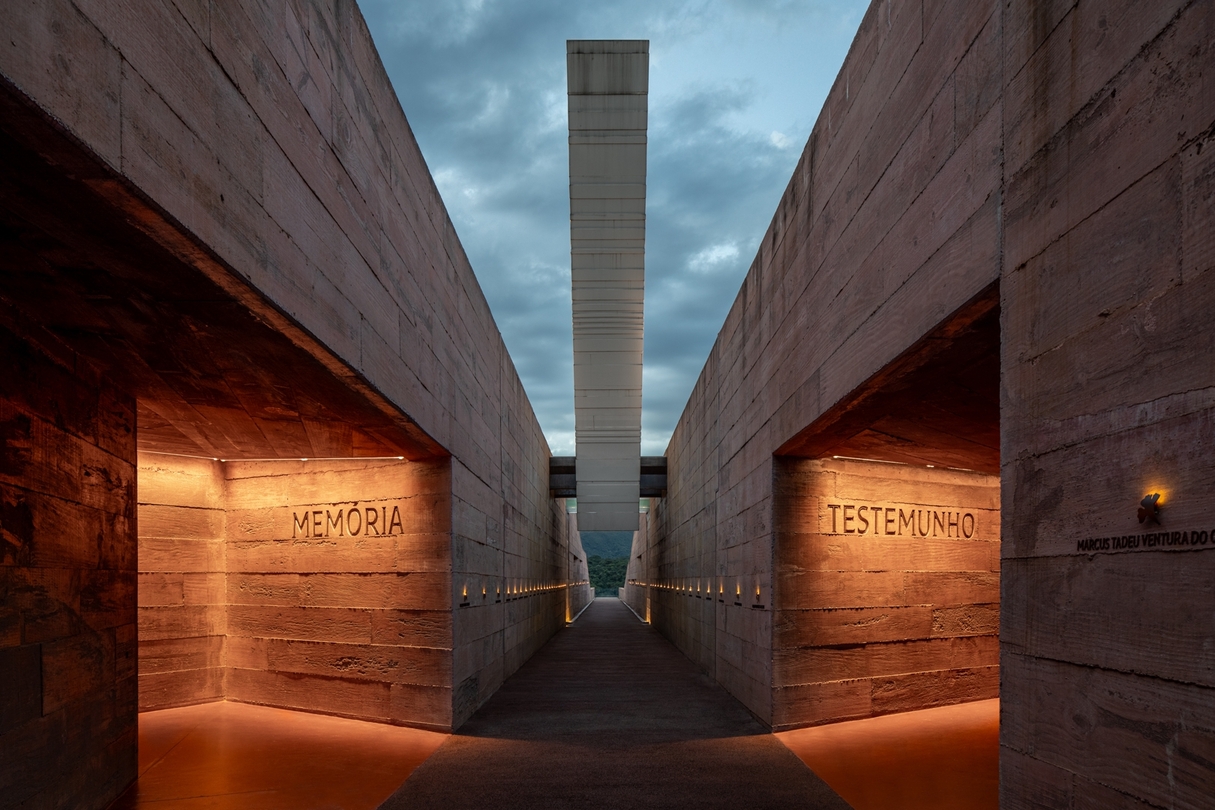Welcome to an exclusive interview with Lucas Fialho Caramés, the brilliant mind behind the Poty Armchair, which has won the SIT Furniture Design Award for Furniture Design of the Year. Lucas’s design merges contemporary comfort with traditional elements, resulting in a piece that is as visually captivating as it is comfortable. The Poty Armchair, inspired by the rich craft culture of the Delta Parnaíba, features a solid wooden structure and generous upholstery. Its standout feature is the carnauba straw weave that elegantly encases the armchair, showcasing the exquisite craftsmanship of the region.
This intricate weave enhances the armchair’s aesthetic appeal and celebrates the artisanal heritage of the local community. Each detail reflects the skilled artistry passed down through generations, creating a profound connection to the cultural fabric of the area. The juxtaposition of solid wood, soft upholstery, and handcrafted weaving results in a piece that offers both physical comfort and a tactile, visual experience rooted in tradition.
Lucas Fialho Caramés, a graduate of Architecture and Urbanism from the Catholic University of Brasilia, also studied Furniture Design at The FIDI. His studio, Lucas Caramés Authorial Design, is a Brazilian brand dedicated to minimalist and contemporary reinterpretations of Brazilian modernist furniture. The studio’s mission is to create designs imbued with stories and meanings, offering a unique, contemplative perspective that transforms everyday life while honoring collective heritage.
Join us as we delve into Lucas’s journey, his inspirations, and the remarkable creation that is the Poty Armchair.
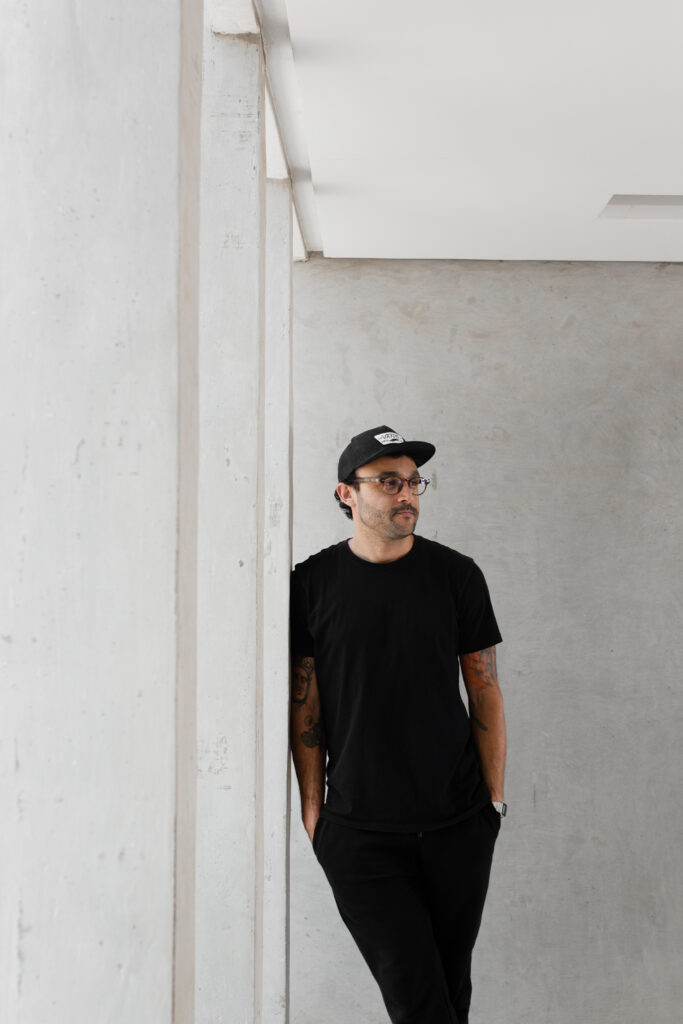
Can you tell us about your background and what led you to a career in design?
I live in Brasília, but I was born and raised in Salvador, Bahia. I have always had a great appreciation for visual arts and drawing, and I think that’s where the spark for my journey in architecture and design began.
As the son of an architect mother, I was always encouraged to express my ideas and creativity, no matter how—whether through drawing, crafting, or making home movies with my parents’ old VHS camcorder.
My relationship with architecture has existed since a very early age, but never in such a direct way. My mother, being an architect, greatly encouraged me to be creative, but she did not directly influence me to become an architect. It ended up being a healthy and natural choice.
I always wanted to study something that would allow me to exercise my creative side, and I saw in architecture a sea of possibilities. However, it was only five years after graduating that I delved deeper and truly discovered the world of product design. Since then, I have found a passion.
Can you elaborate on the vision behind the Potty Armchair? What was its major inspiration?
Poty is inspired by the exuberant Artisan Culture of the Parnaíba Delta and brings a unique fusion between contemporary comfort and traditional local elements, incorporating the distinctive craftsmanship of the region and drawing inspiration from its local biodiversity. The collection incorporates natural elements and unique characteristics of the coastal ecosystem, providing a harmonious blend of functionality and aesthetics.
Can you walk us through the design process? How did the design evolve from your initial idea to the final product?
It all started with the idea of working with metal structures and representations that were closer to the reality of the references used. However, studying the location and its cultural history led to the evolution of the design conception towards warmer, more natural materials. The substitution of metal for wood gave the collection a new significance and connected it even more with the concept.
The celebration of craftsmanship is a big part of the Poty Armchair, can you delve deeper on how the Poty Armchair reflect the cultural heritage of the Delta Parnaíba region?
Poty is a celebration of the past and present, where contemporary design meets tradition, creating a lasting connection between the furniture and the local culture of the Parnaíba Delta. Additionally, Poty seeks to raise awareness about the importance of preserving mangroves and similar ecosystems. In this way, it not only enriches the environment but also serves as a visual reminder of the need to preserve and appreciate the natural diversity that inspired its creation.
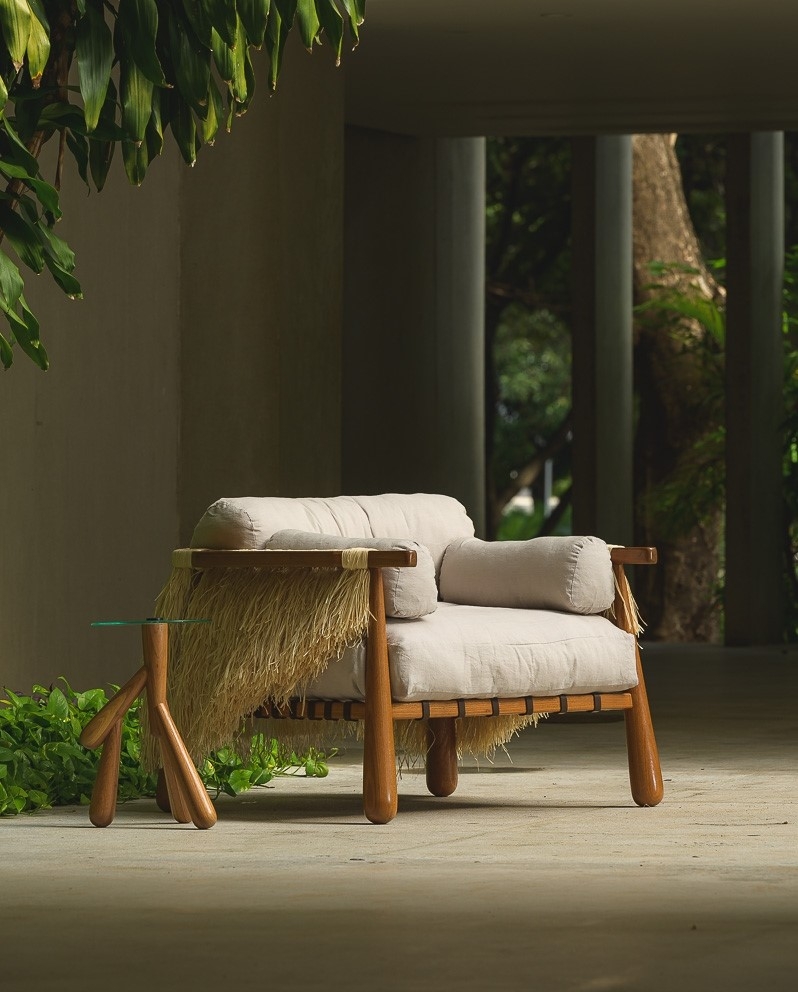
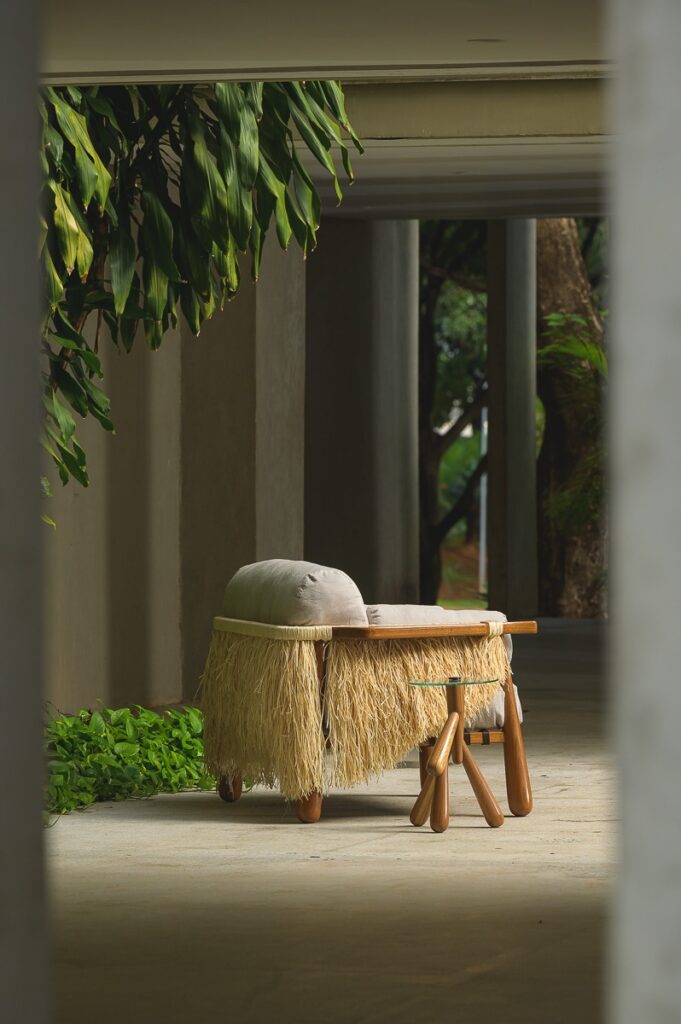
Can you tell us about the main challenges you faced while creating the Poty Armchair? What did you learn from this process?
The initial idea of the project was to exchange ideas and connect artisans during the execution of the project. In this regard, we faced some difficulties in making this production feasible in a state far from where I live today. The solution was to utilize local artisans and labor who could do justice to the story being told and honor the culture of Piauí, paying tribute to and expressing gratitude for the cultural enrichment the region has provided me.
Was sustainability a factor in your design process for the Poty Armchair, and if so, how?
In a way, sustainability goes hand in hand with the artisanal creation process, through the use of recyclable materials, leftover buriti palm fronds, and the reuse of old and reforested wood lots. In the Poty process, our vision of connecting culturally also encompassed circular economy practices.
Congratulations on winning the SIT Furniture Design of the Year award! What is next for you and your studio? Are there any new designs you’re working on that you can tell us about?
We are dedicated to gaining space in the national scene here in Brazil and expanding our brand. New projects are being developed and will be launched at one of Brazil’s main design events – MADE (Mercado de Arte e Design), a collection that tells the story of my career and symbolizes the importance of Architecture in my evolution process. I’m also dedicated to promoting the design scene in the city where I live, which is the Capital of the country – Brasília. I’m involved in organizing the local Design Week and also other projects that will mobilize the city as a whole to embrace Design culture.
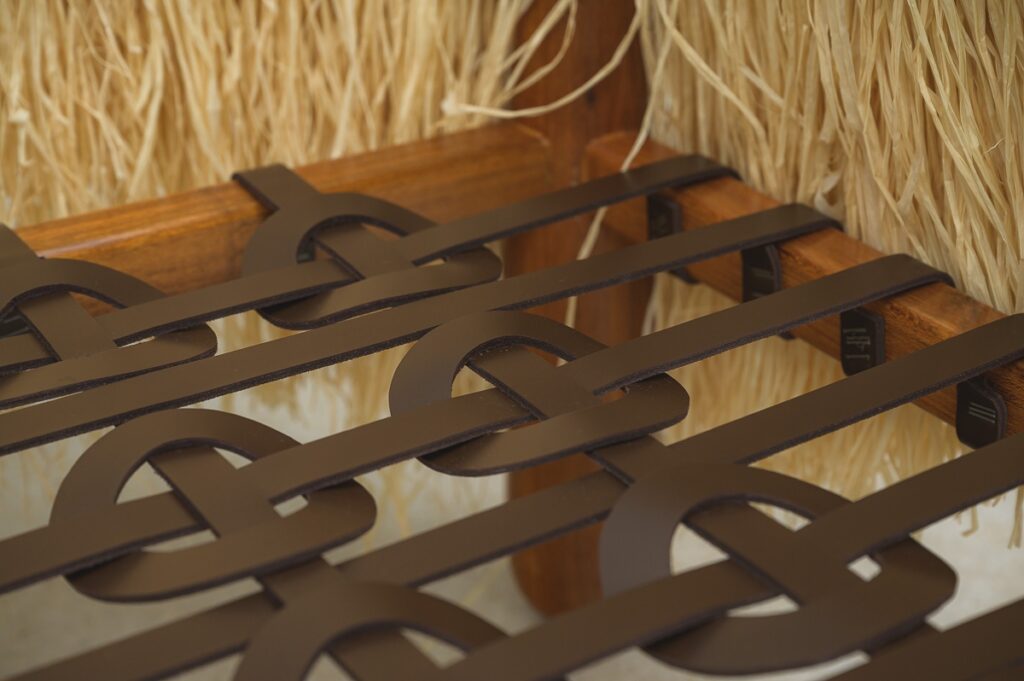
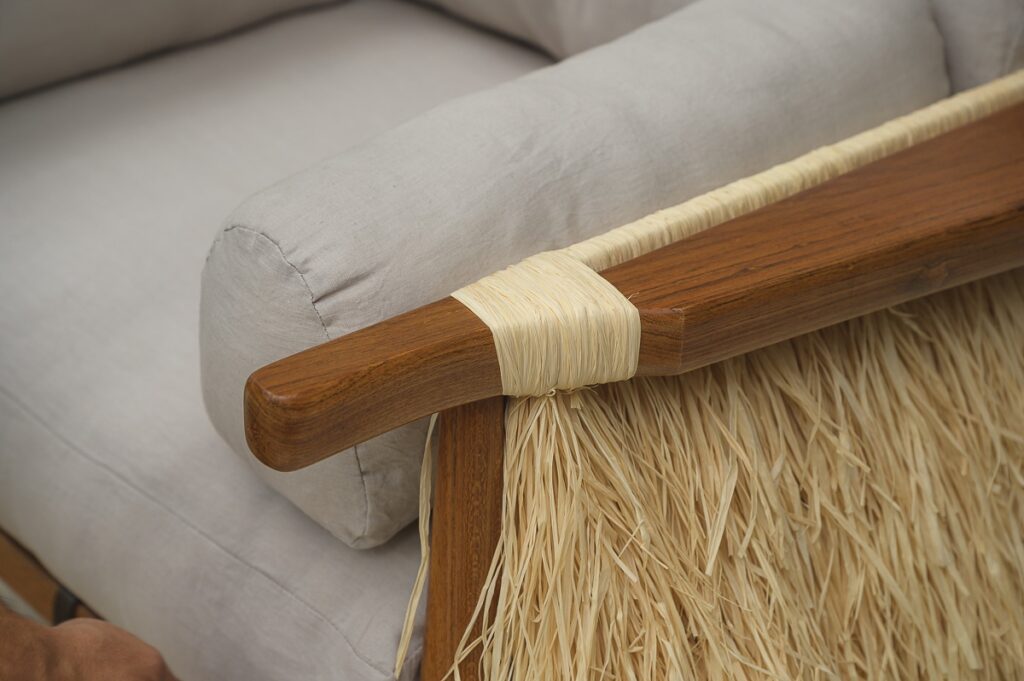
What advice would you give to aspiring designers who want to follow in your footsteps?
I believe in authorial design as part of the constant search for more knowledge. So, I see it as a starting point to explore one’s identity and to discover the path that can be taken. The authorial design allows for a design free from excess and balanced through meanings and stories, an individual expression that reinforces collective behavior.
I understand that everything has its time and I see the importance from the moment of the idea to the conception of the project, as meticulous processes. Authorial Design for me allows for exchanges, and reciprocity is the key to promoting a true connection between the object and the person who touches, uses, and observes it.
The greatest challenges for an authorial designer lie in the manufacturing process and in securing qualified labor that can represent their idea concretely.
Particularly where I live, in Brasília, there is a shortage of skilled and affordable labor, which can serve as an incentive for new creators. I see it as an important process to plan a business plan, to build relationships with partners and suppliers, for creative and production stability, which helps to stay in the independent market.








